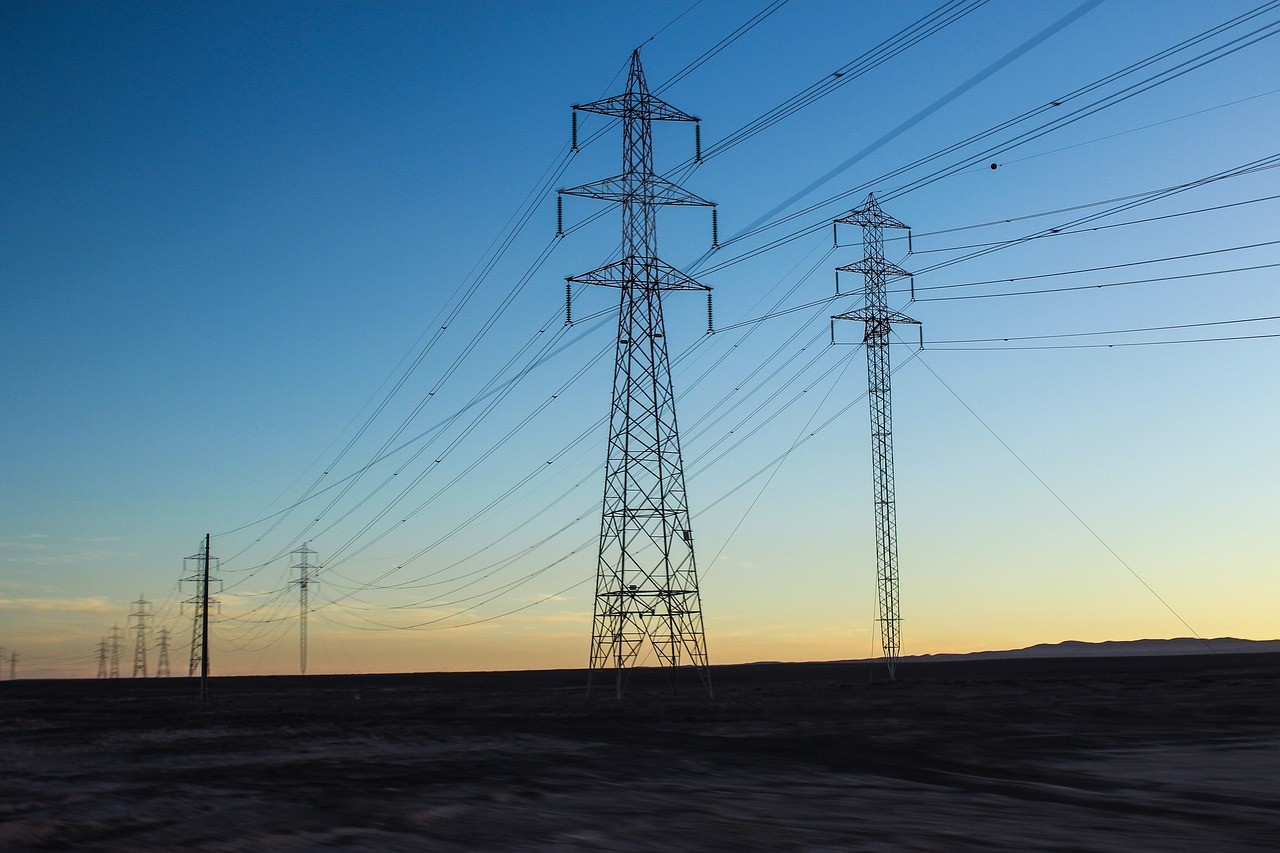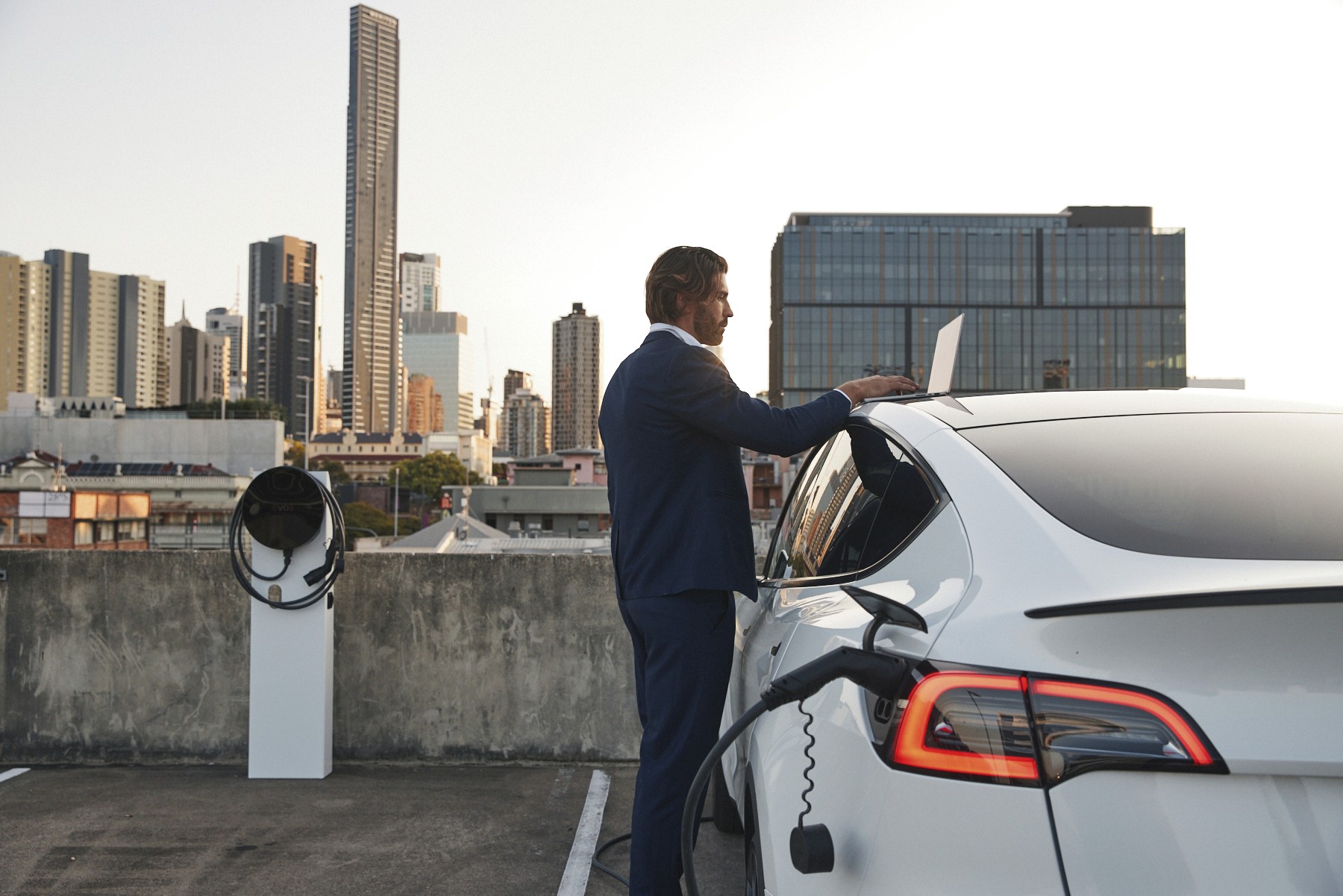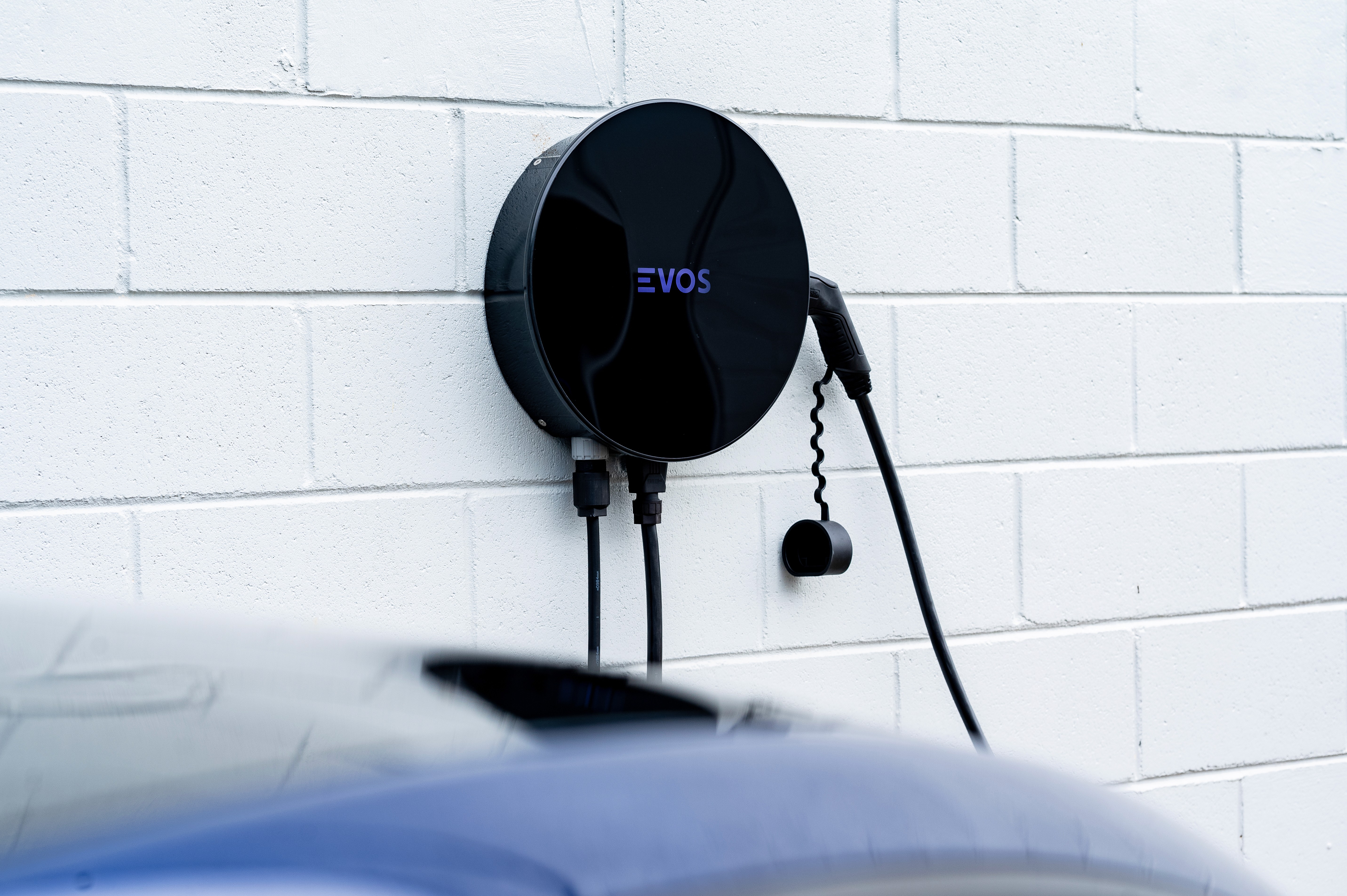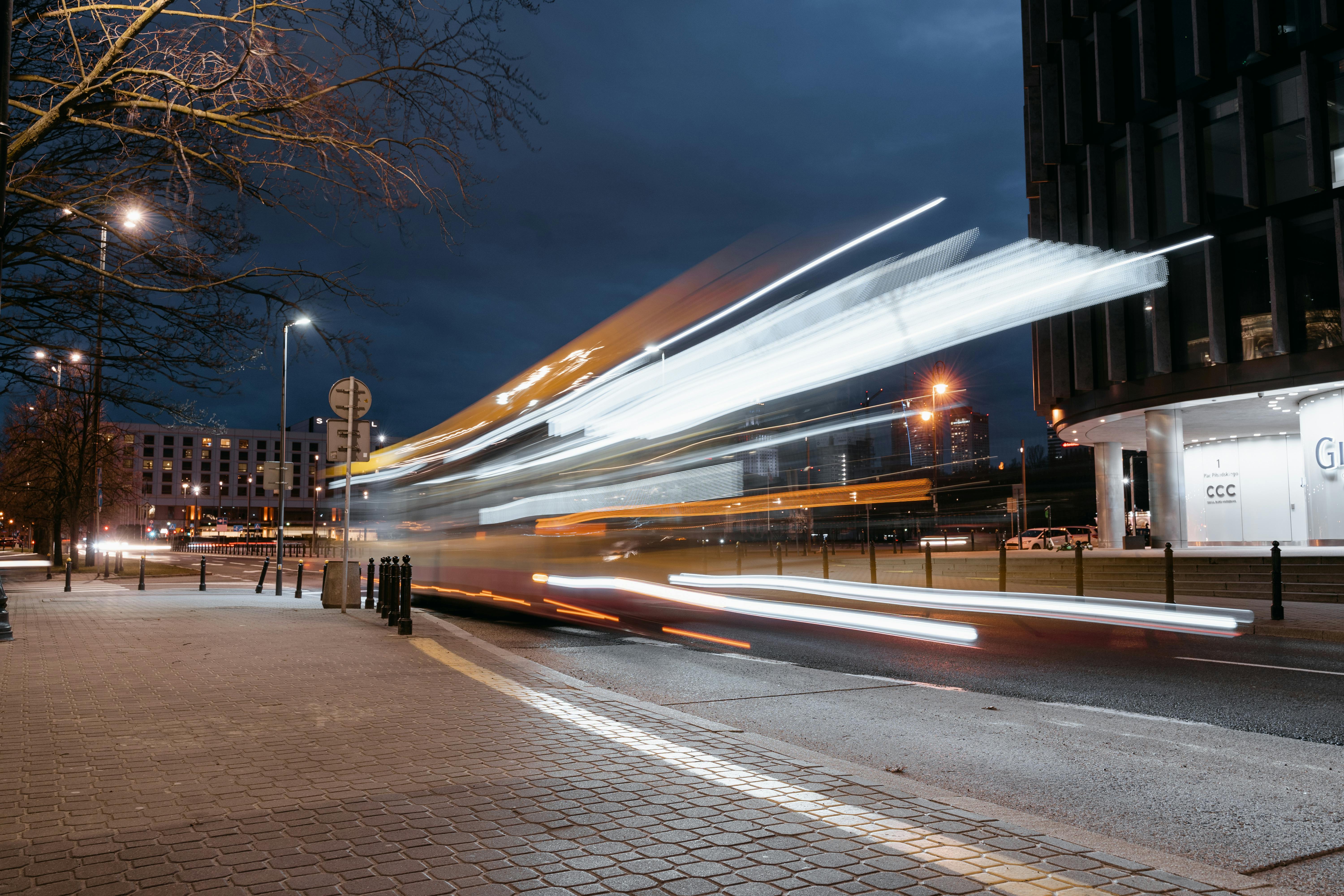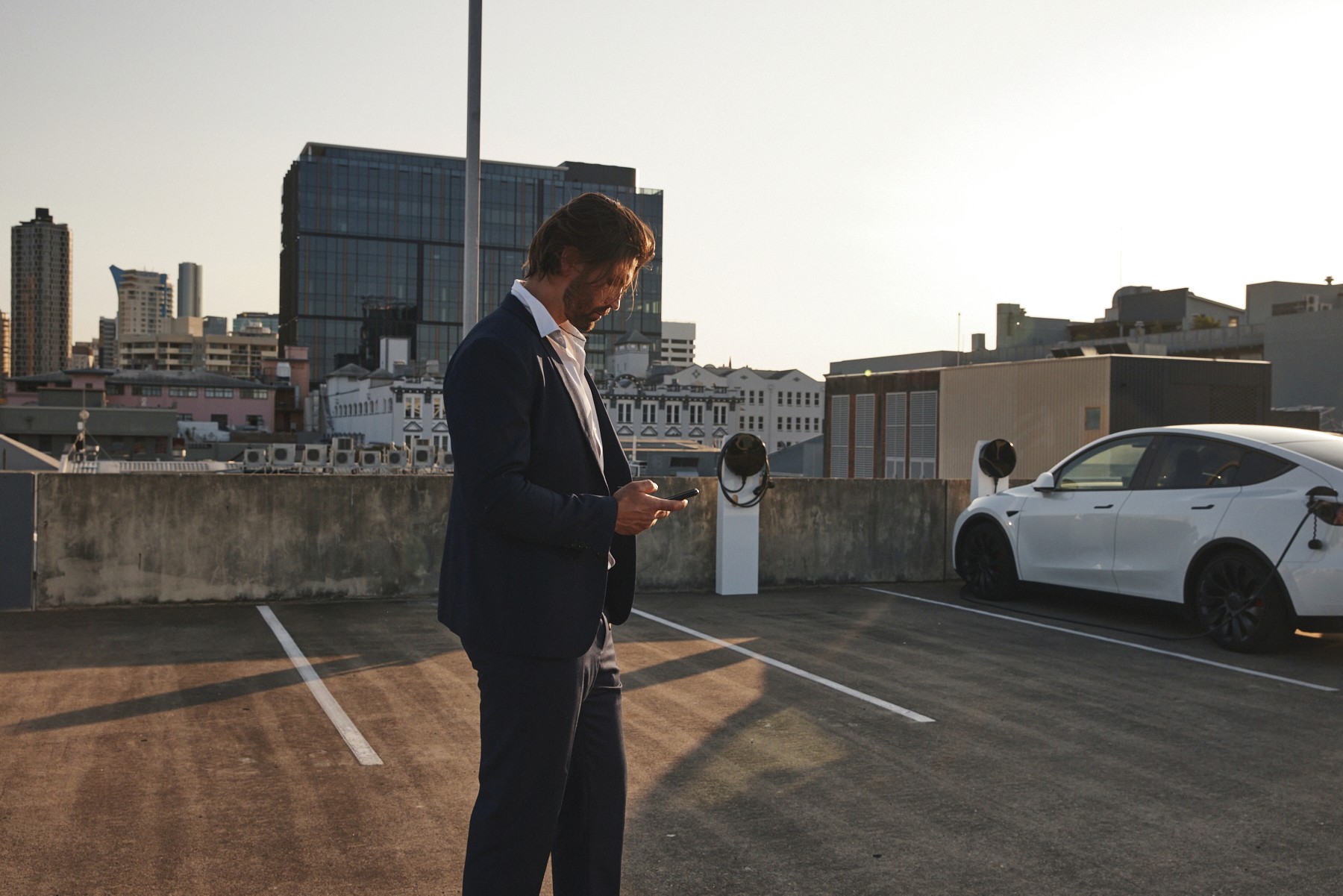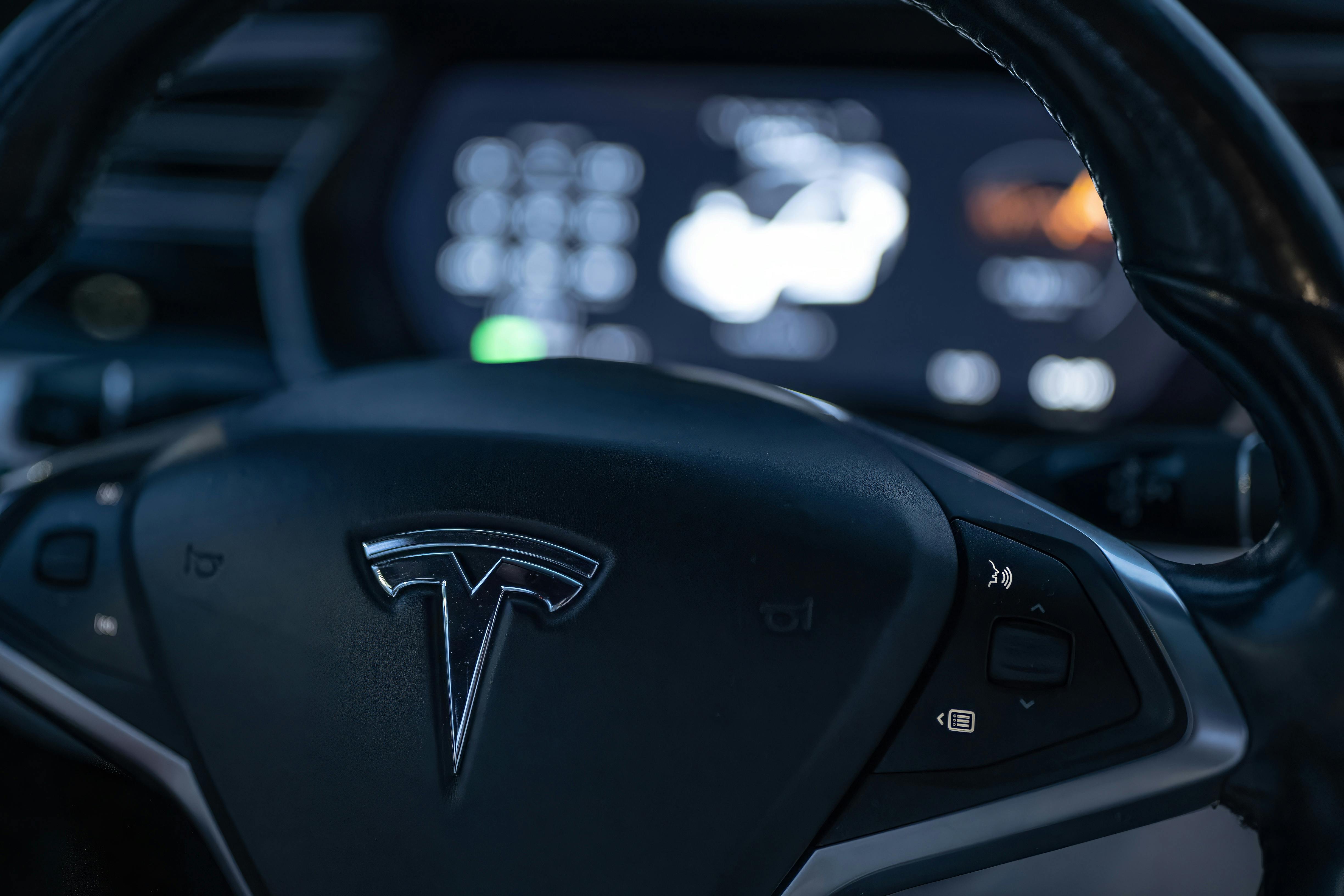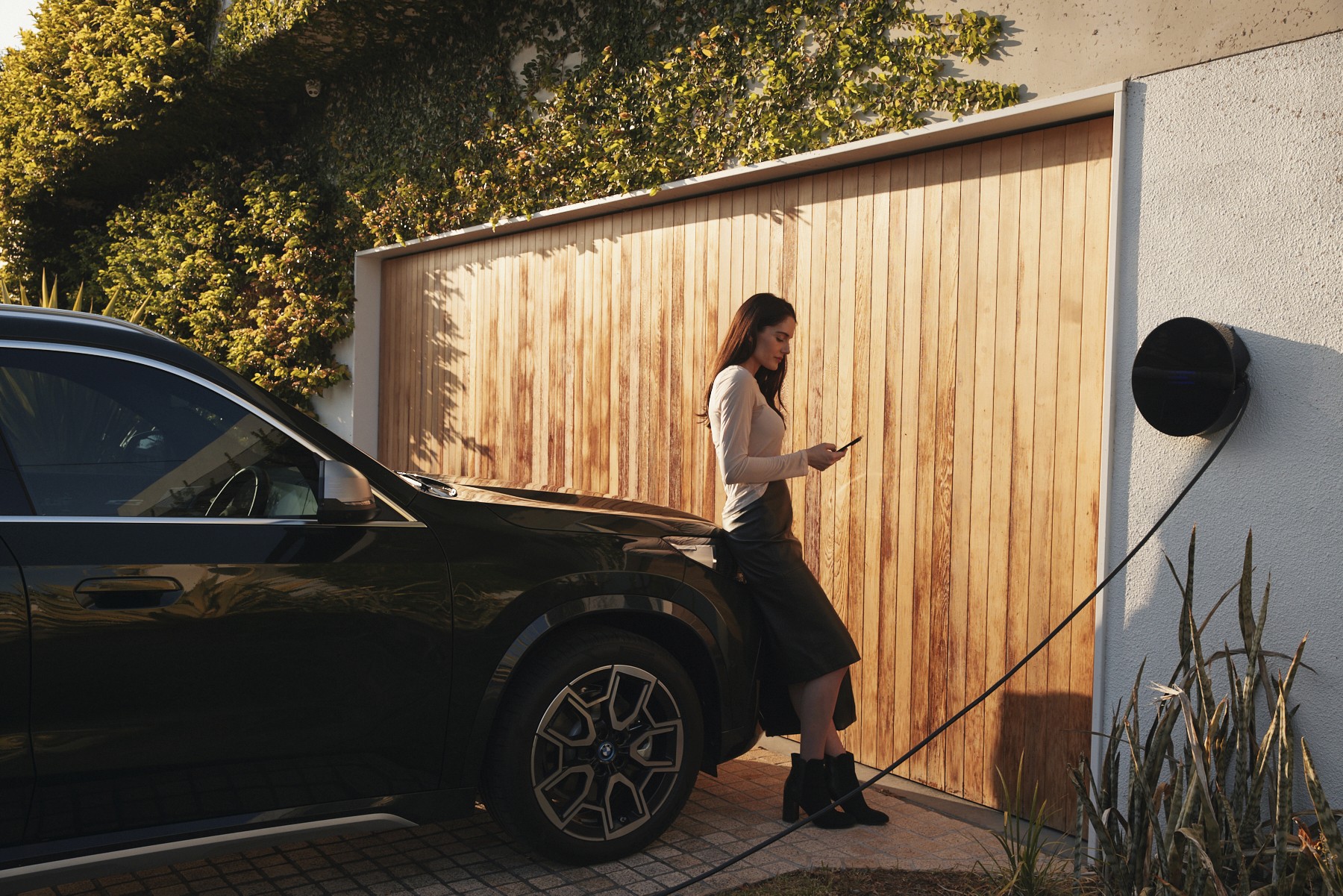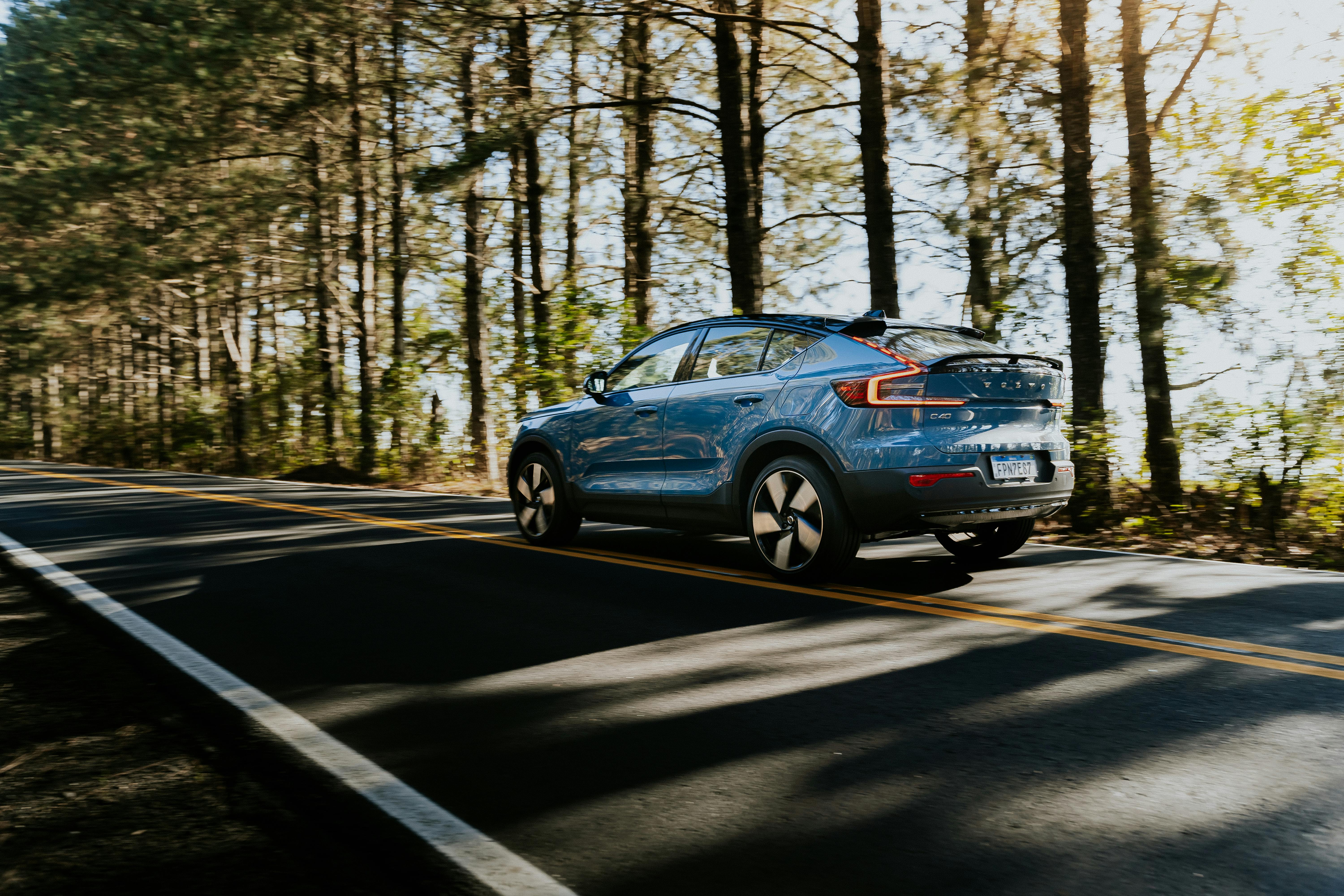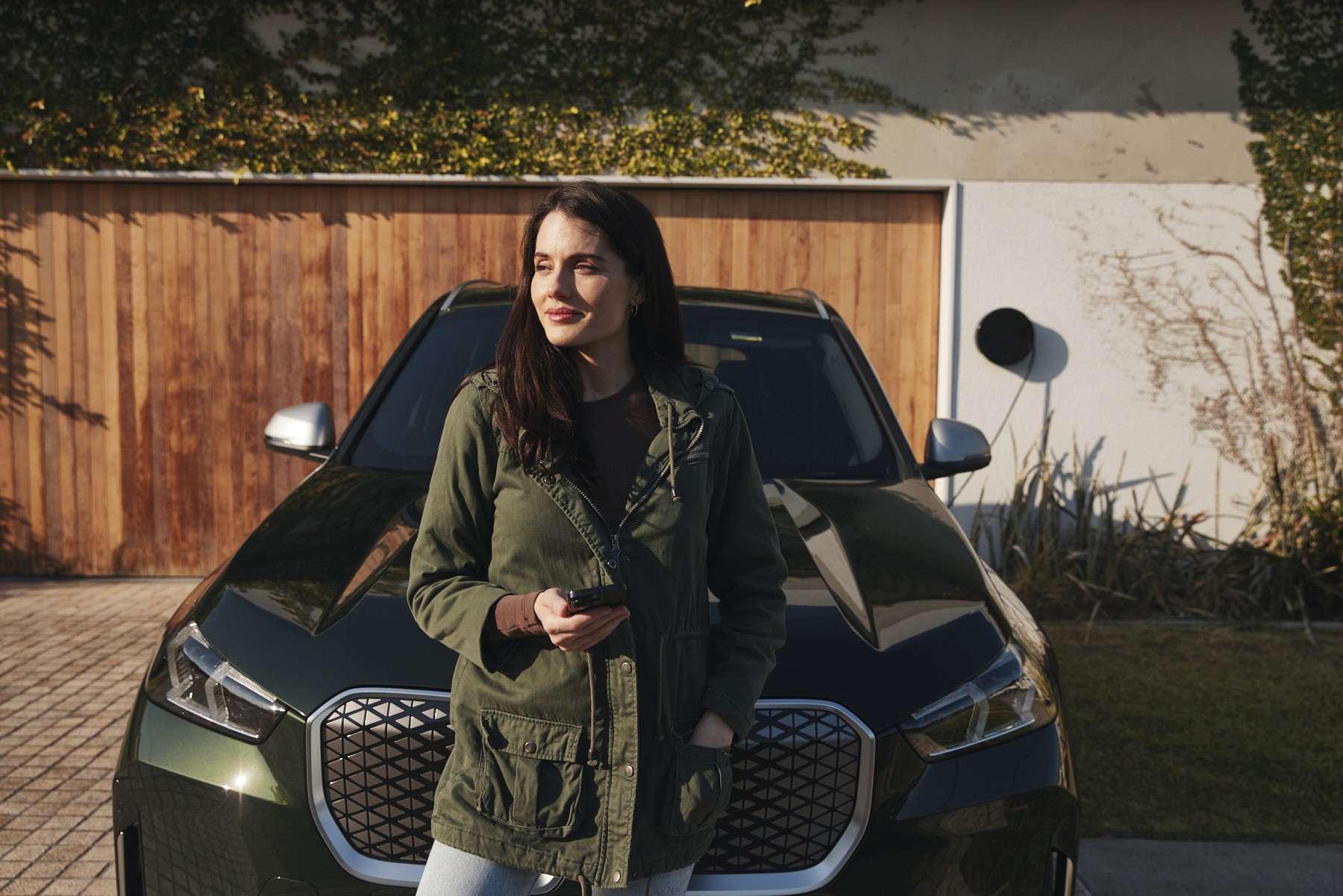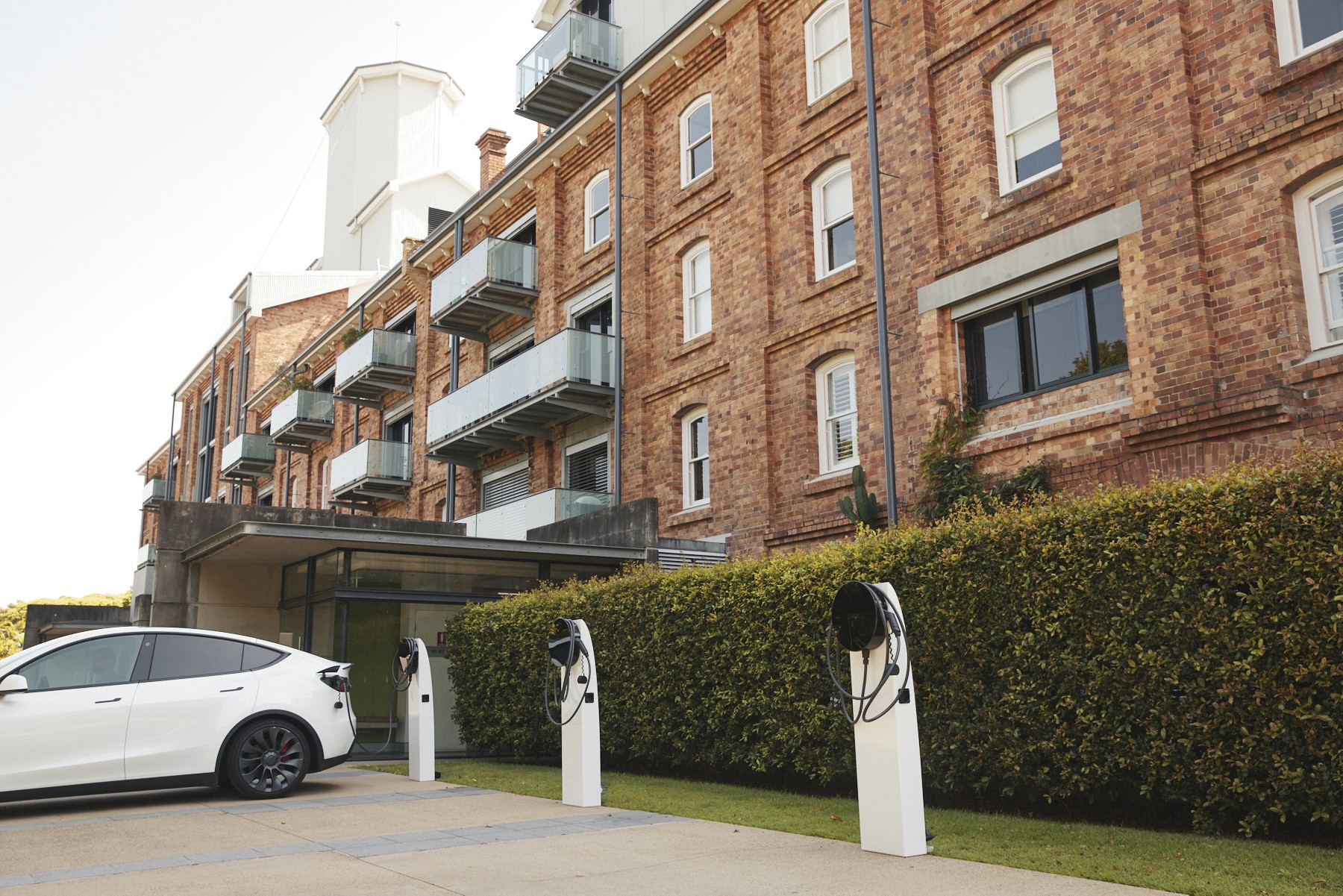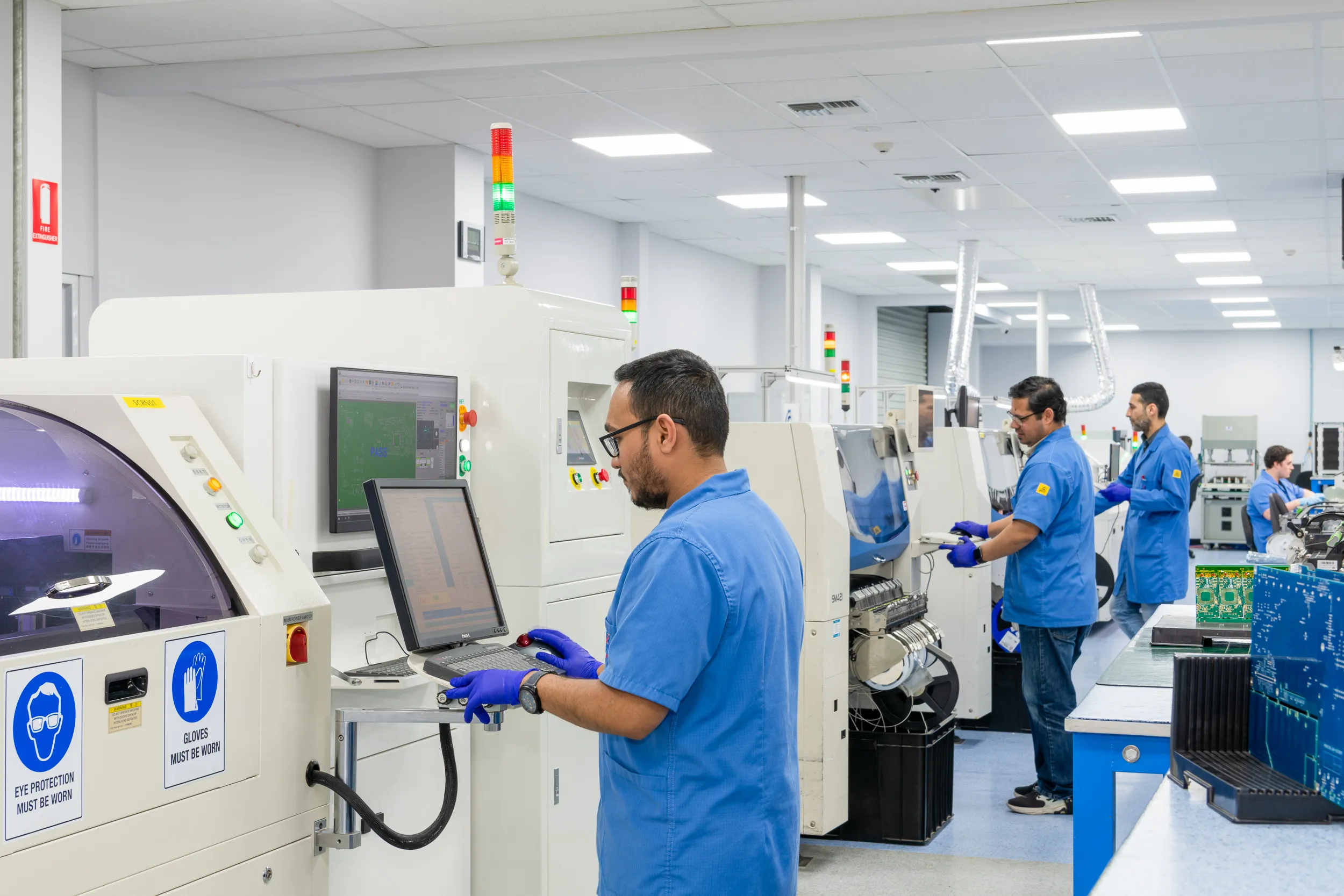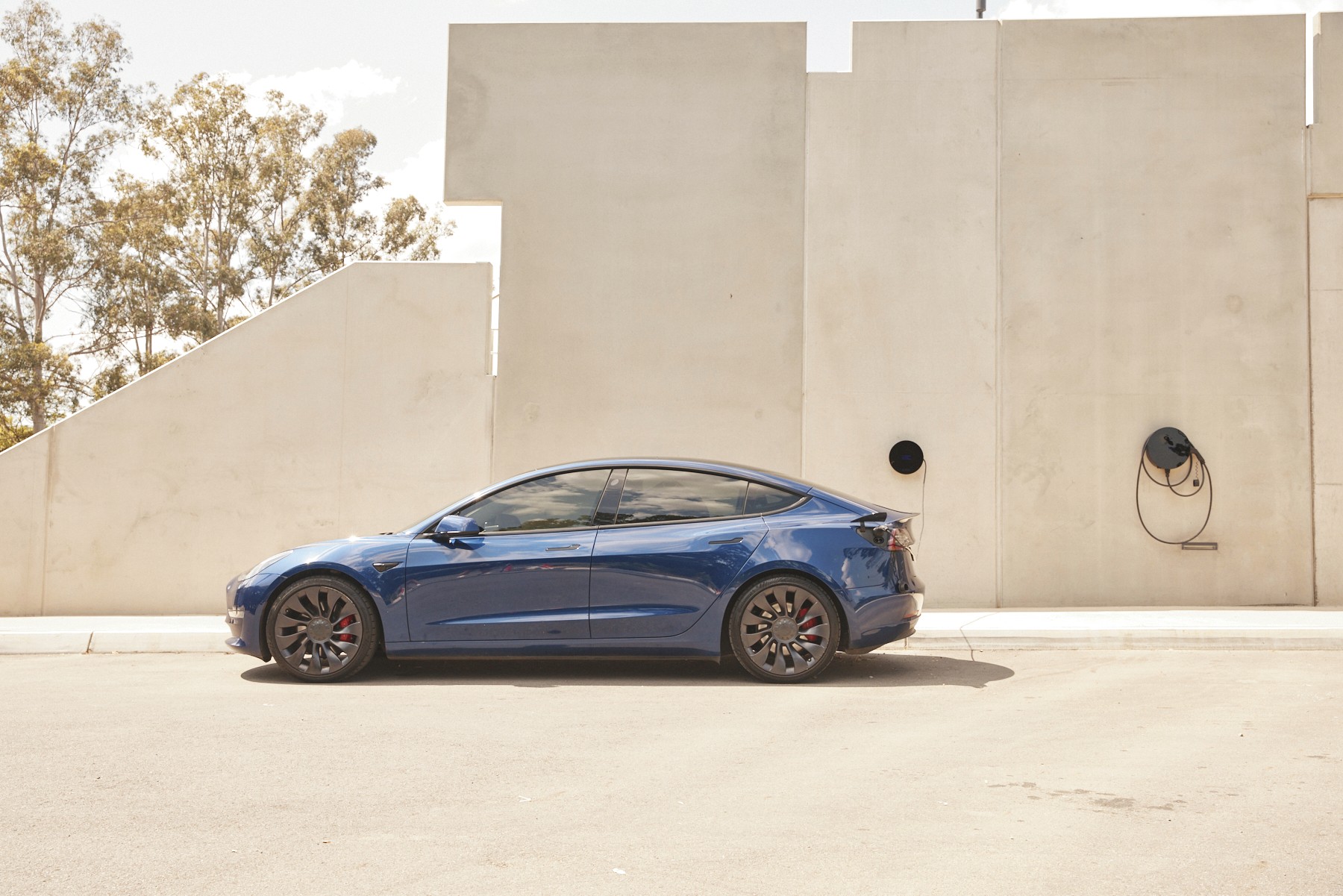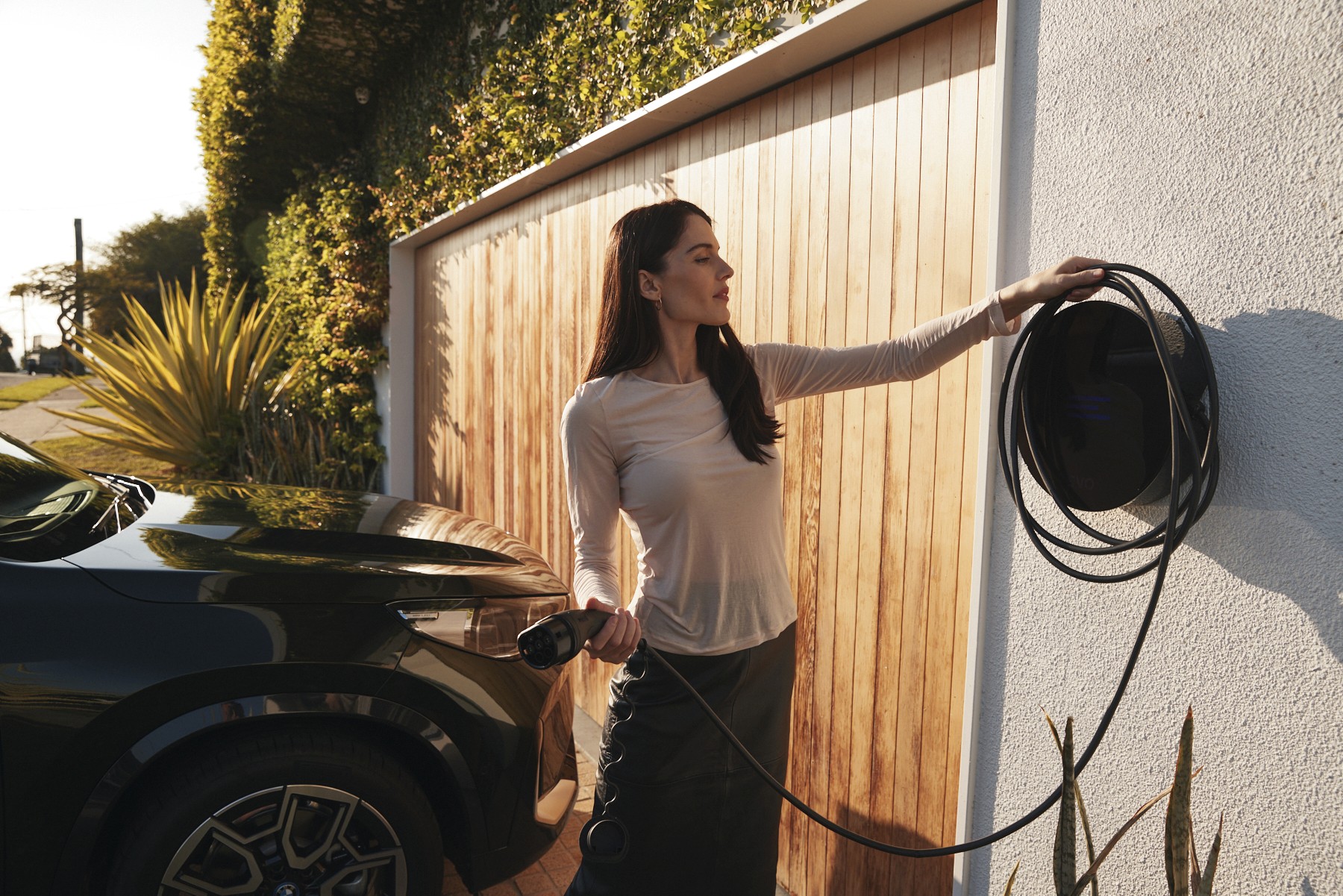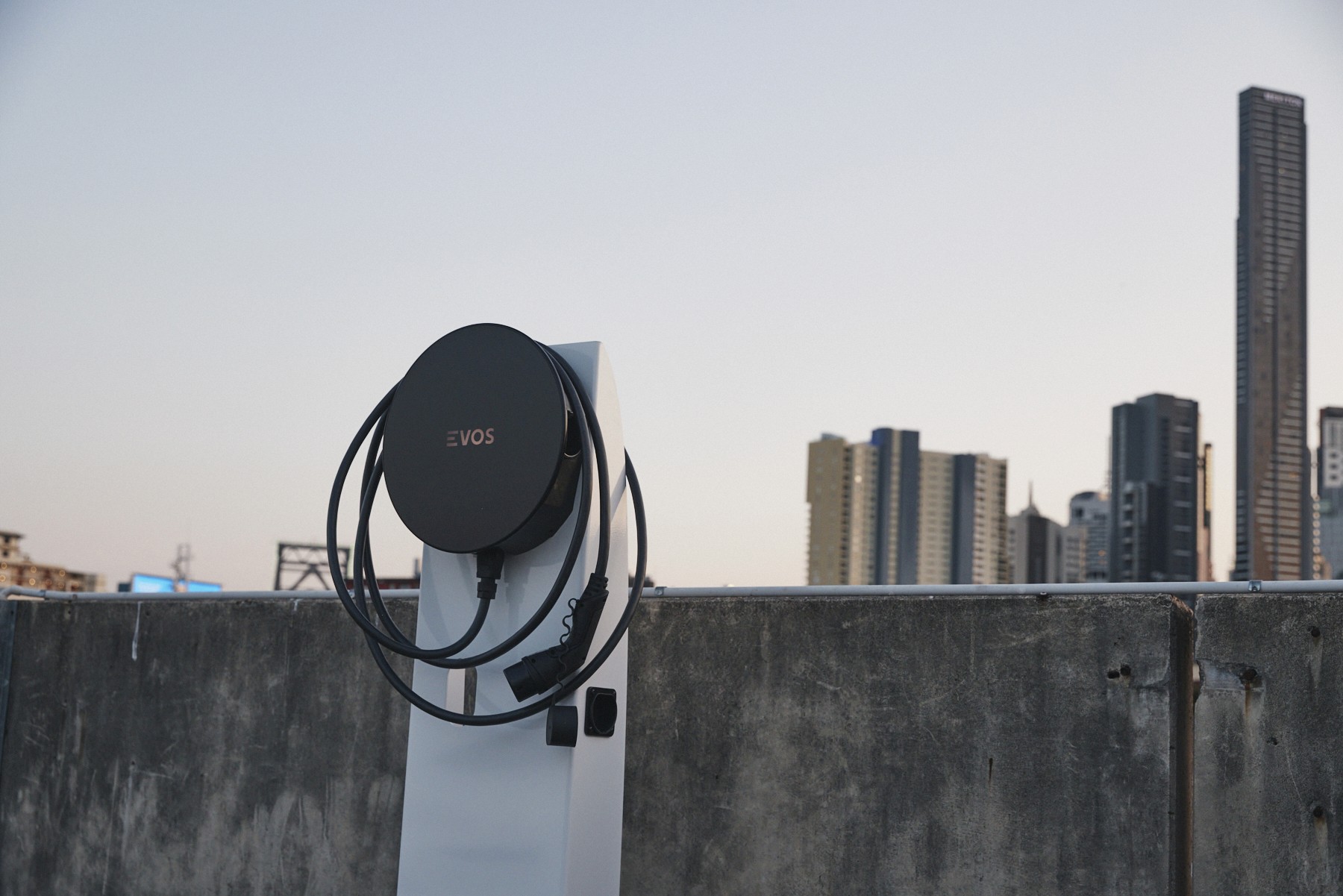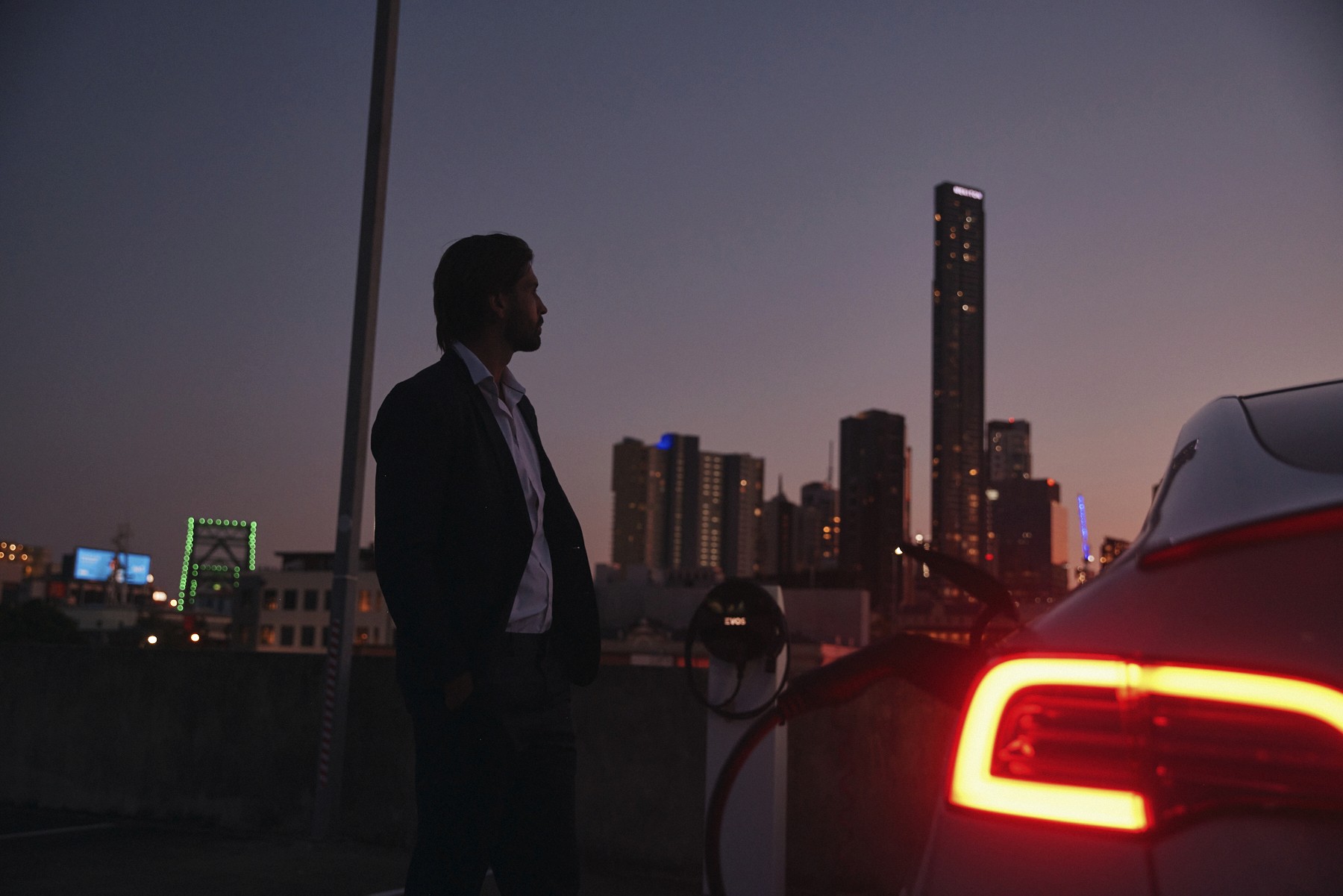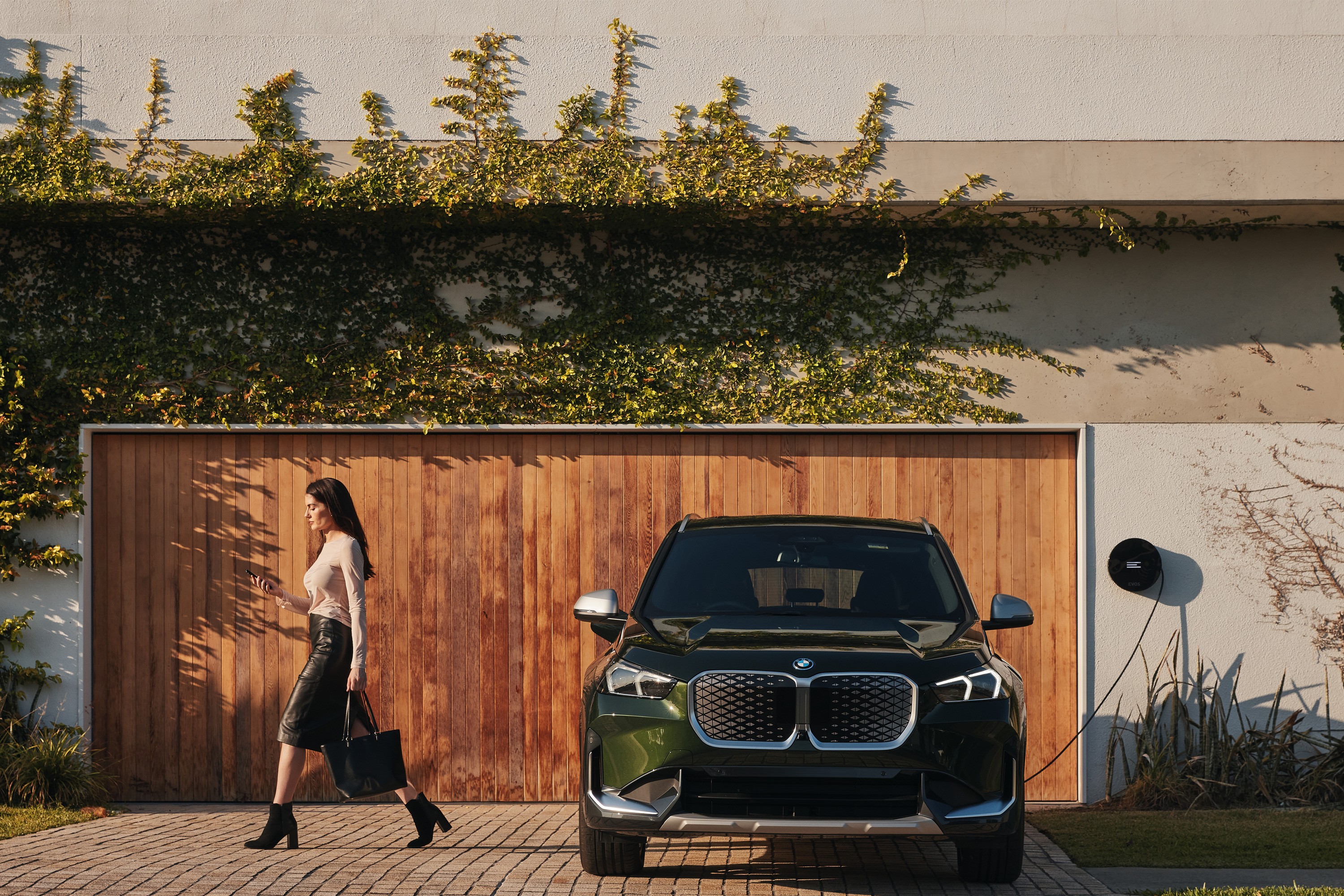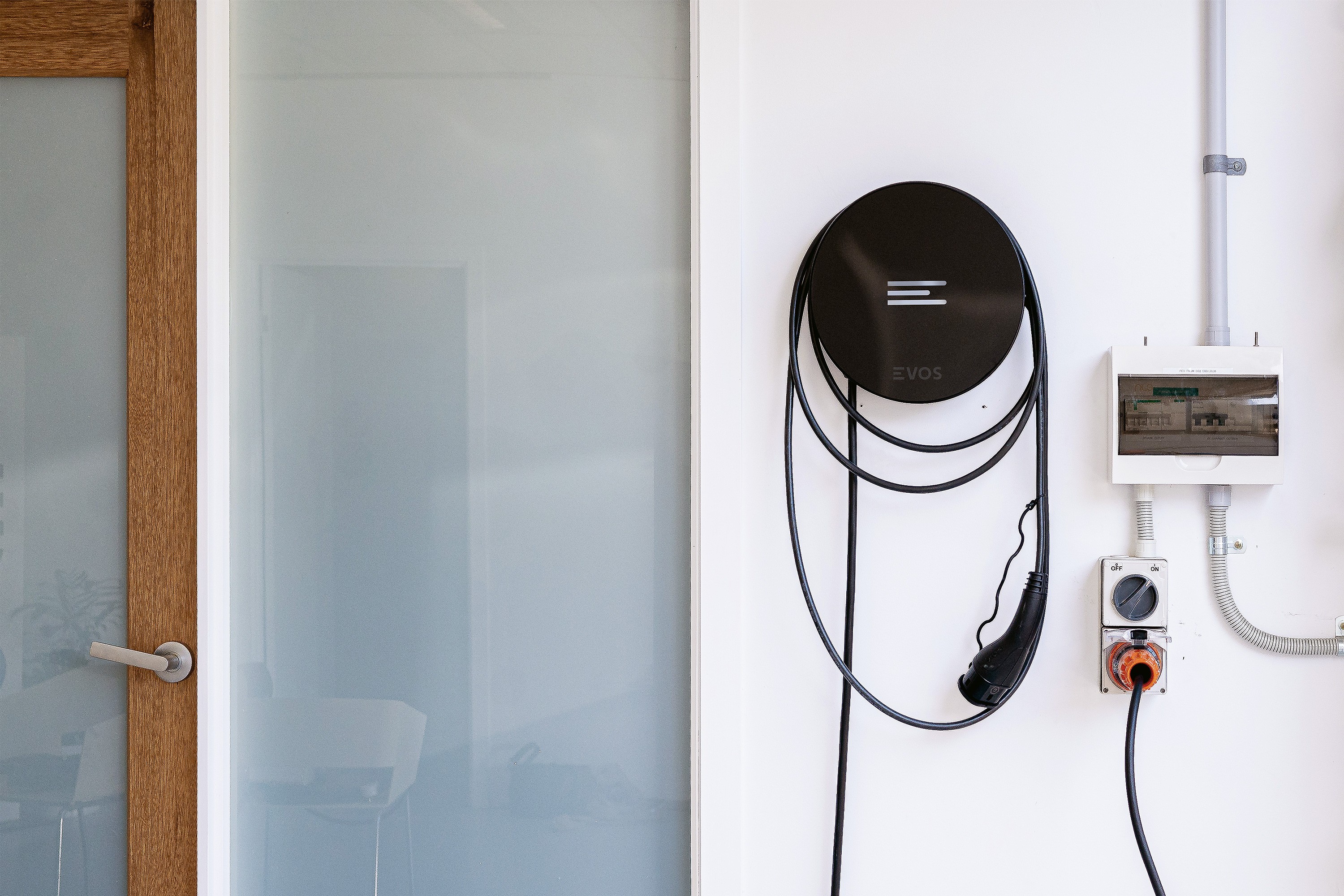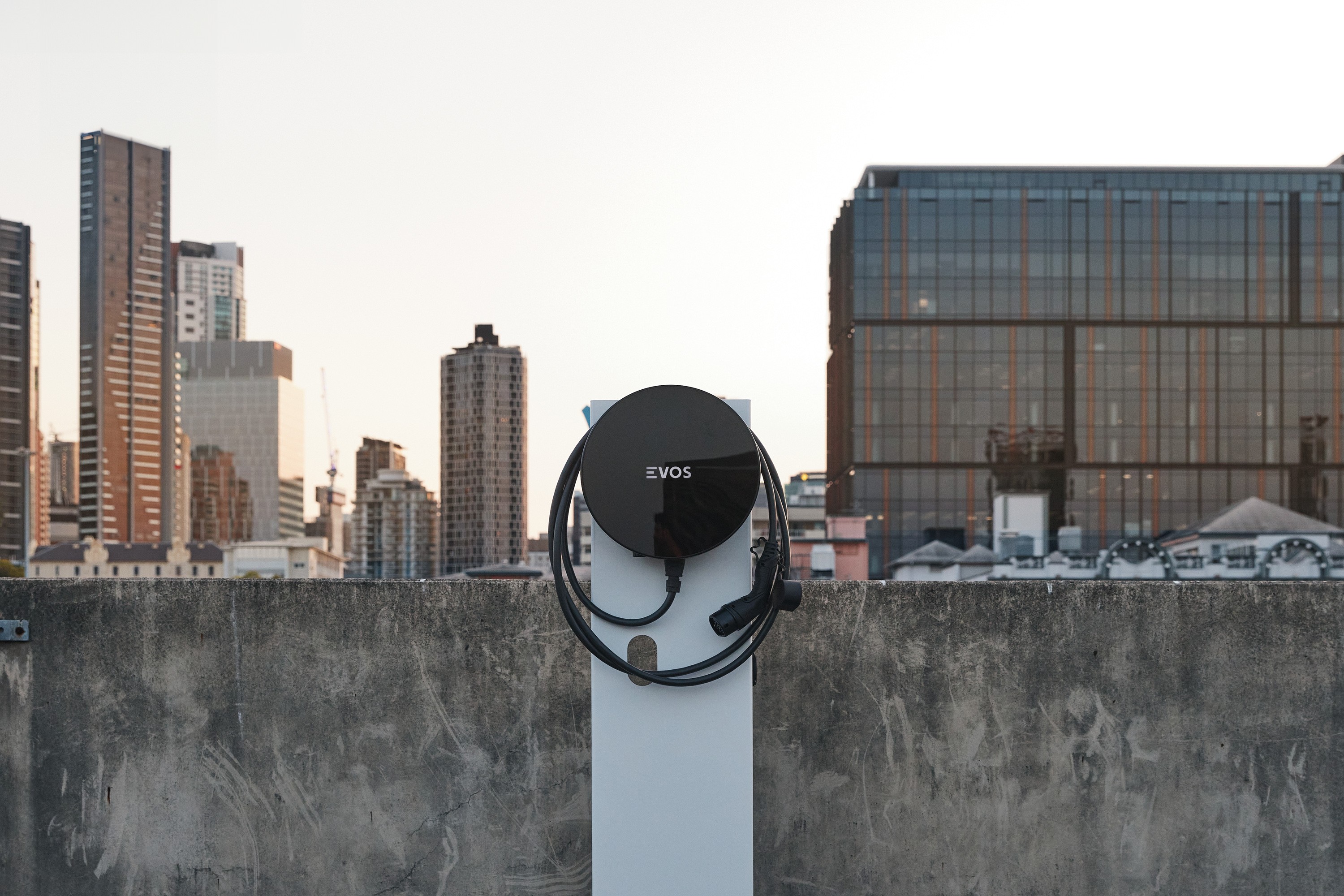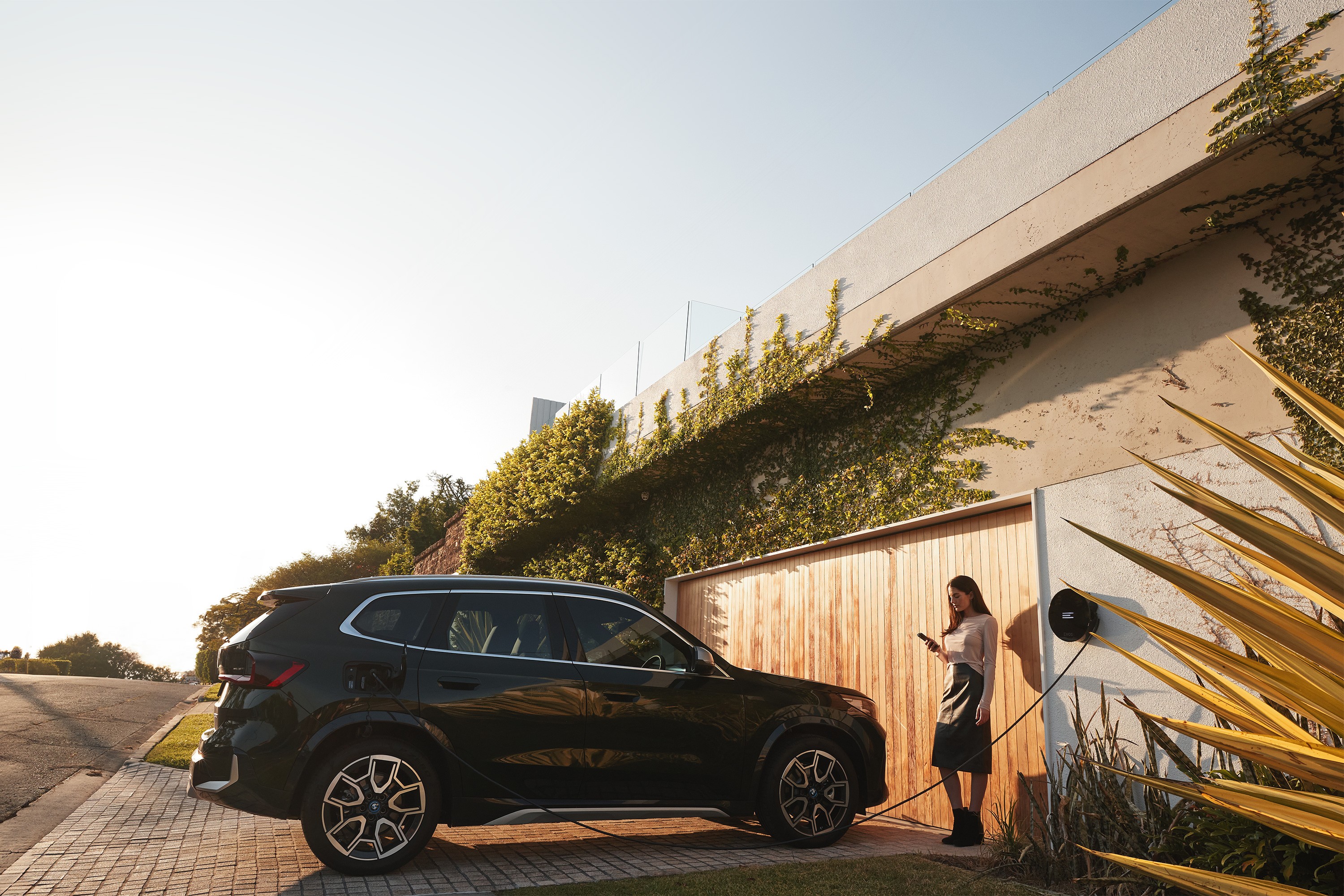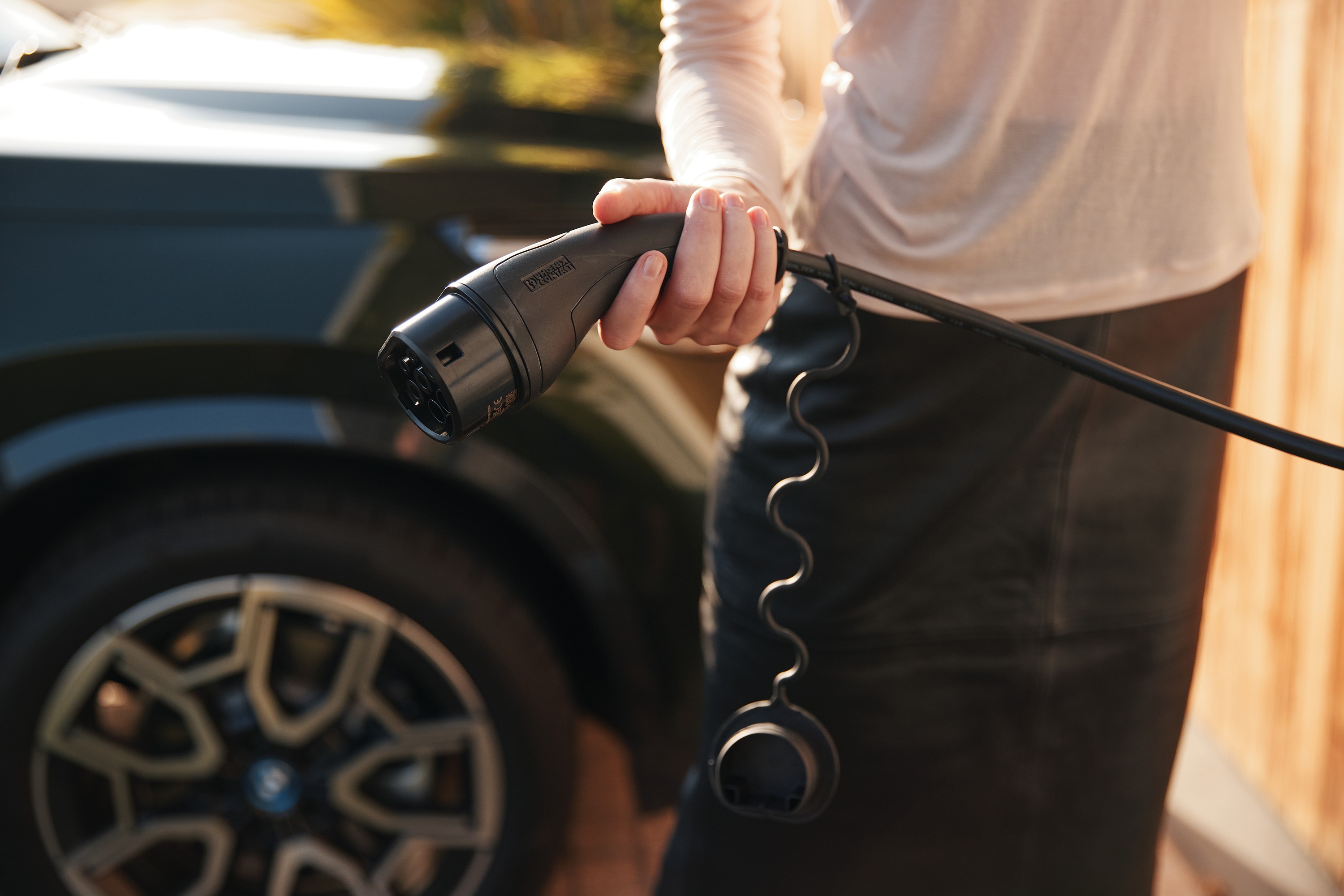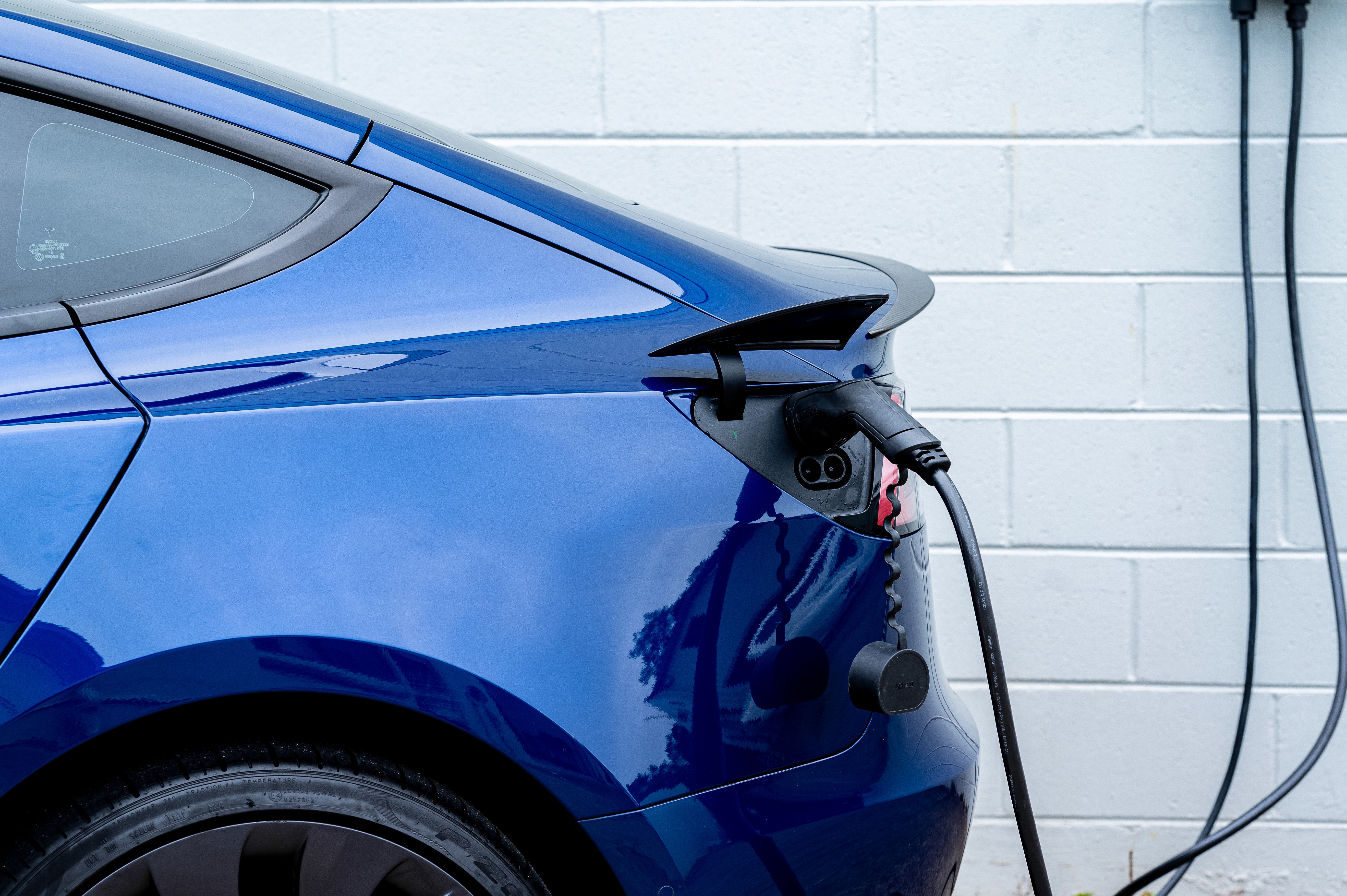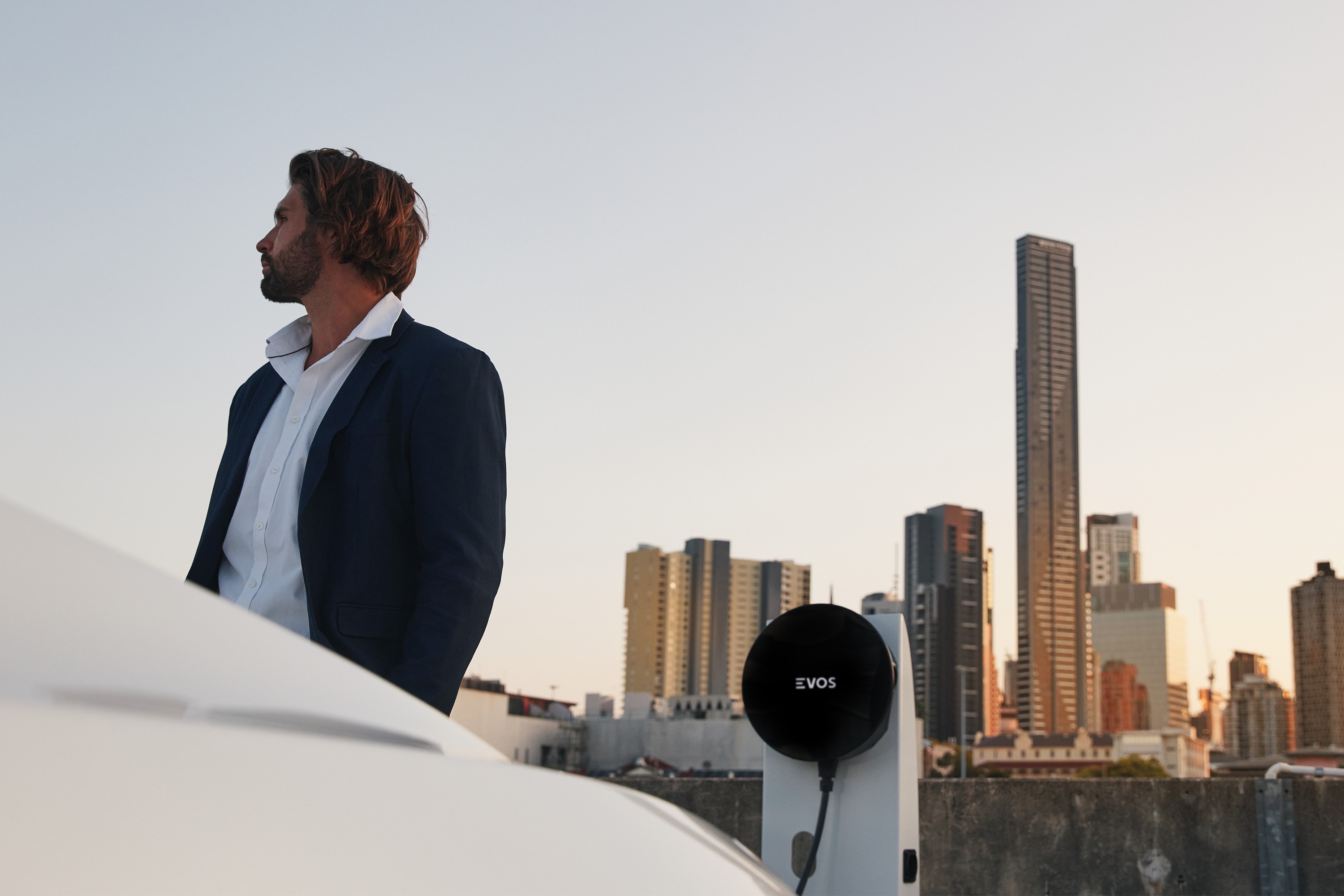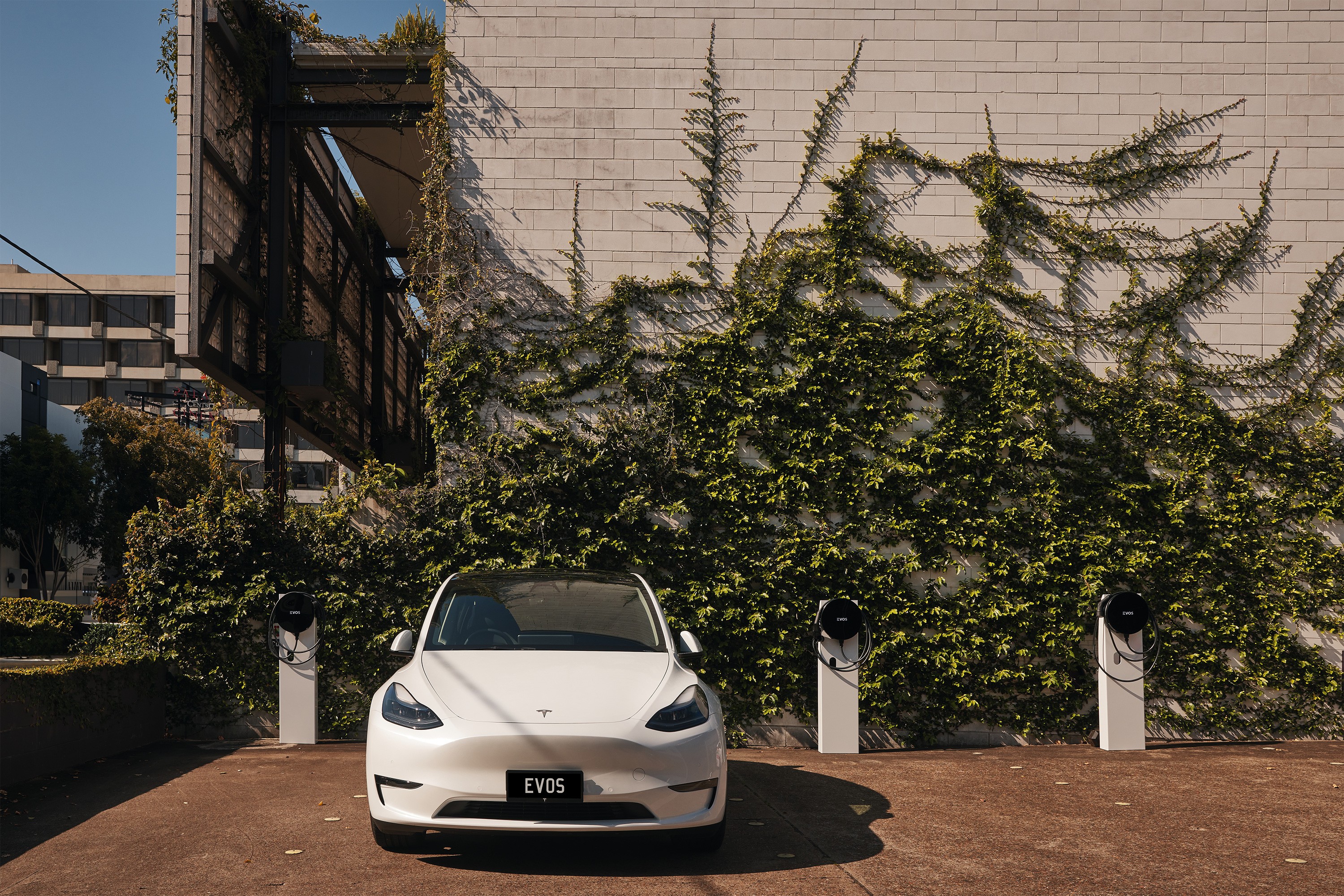

In 2024, nearly one in ten car sales in Australia was an EV (9.65%) (Electric Vehicle Council), and this is set to only increase in 2025 given the huge influx of new brands, makes, and models flooding our market.
With such high numbers of new cars on our roads taking us about our days, we need the ability to charge our EVs as easily as we would any of our other battery-operated devices. Your workplace and home may be equipped for a charge but what about when you head away for the weekend? When checking into an Airbnb, hotel or resort we’re often supplied with complimentary Wi-Fi, some coffee pods, and maybe even a couple of mints on your pillow – but how often do you consider complimentary (or even access to) EV charging?
The adoption of EVs and PHEVs is trending upward, as is the number of us heading away locally in our EVs for holidays or perhaps booking a rental EV for the trip. So, it’s natural that drivers would seek out accommodations that have EV charging stations. The hospitality industry is having to evolve to meet this need. From global hotel chains to individual Airbnb hosts, offering EV charging is shifting from being a nice-to-hand to becoming a competitive necessity.
Are holidaymakers asking for EV chargers?
In case you were wondering, Airbnb has the data. According to the online accommodation marketplace, EV drivers are increasingly filtering search results based on EV charger availability. In fact, searches using their EV charger filter grew more than 80 percent in the US from 2022 to 2023. Listings that offered an EV charger were also booked for more nights and generated on average more income, compared to listings without an EV charger.
Many major hotel brands are also racing to future-proof their operations. Hilton recently announced they were partnering with EV chargers to install 2,000 fast chargers across 400 European hotels. Marriott, The Hyatt, and IHG are following suit, having seen how sustainability is increasingly playing a vital role in guest decision-making.
To put this into context, not long ago, EVOS CXO Seshan Weeratunga had a firsthand experience that showed how useful holiday accommodation charging would be.
On a recent trip to Stanthorpe in southern Queensland, Sesh noticed that there was only one available public charging site right in the centre of the town.
“If you’re driving around the region of Stanthorpe to visit the wineries etc you’ll notice the speed limit is generally above 90km/h which of course drains your EV battery faster, so that means you’ll need at least a top up charge - daily. Because the only charging stations are in the town centre, that’s adding an extra 30 mins of driving for a charge, and there’s no telling how long the wait times would be if there are multiple EVs needing charging. Having a destination charger would be the perfect solution for a traveller in this region, being able to head back to the Airbnb and do a top up charge each night, or alternatively having facilities at some of the wineries where you’d generally spend a couple of hours anyway and could rely on solar if they had it setup, as to not drain their site power.”
What are the benefits of installing chargers for Airbnbs and hotels?
The list of benefits for hotels and Airbnb hosts is long. Installing EV chargers can attract not just customer satisfaction and good reviews, but also generate more revenue. EV drivers tend to stay longer while charging, often using hotel amenities such as dining or spa services during their visit. For Airbnb hosts as well, there are a growing number of incentives and rebates both on a federal and state level to make EV charger installation at your accommodation more affordable.
What are the roadblocks?
Many hosts online have raised concerns about payment for EV charging. Should they incorporate the cost in their accommodation pricing? Should there be an honour system with a daily rate for charging, or a lockbox on the outlet? Ultimately, it’s up to the host, but a third-party application payment that unlocks the charger could also be the way to go. EVOS, for example, has partnered with Stripe for this exact purpose to make public use and payment management simpler. Also, if hosts have a smart charger, they can monitor use, see how much power is typically drawn over time and adjust the accommodation rates accordingly. In some instances, due to the cost being relatively negligible though, many places will either not on-charge or include it in the cost of the stay.
The takeaway
As the world continues to move towards greener transportation, EV charging really should be readily available wherever and whenever we need it. The hospitality industry is already on its way with EV charging, but like many industries, it still has some catching up to do. With the number of incentives available, the ease of installation and the proven financial and sustainability advantages of having EV charging available, it's becoming a no-brainer for properties and accommodations to jump aboard the EV charging revolution.
If you’re looking to install EV chargers at your business or home or explore energy management solutions, reach out to our friendly sales team at sayhi@evos.com.au
Related
Related
Related
EV energy made simple.
EV energy made simple.
EV energy made simple.


